.jpg)
Room: 4055
KIN
I research how plant variation reflects evolutionary diversification and the reconstruction of plant genes' evolutionary histories using molecular systematics and morpho-anatomy

Room: 242
BRF
I study the proximate mechanisms of speciation in North American chorus frogs. I'm broadly interested in the neural and genomic basis for population-level differences in mating traits that drive macroevolutionary processes.
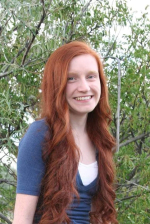
Room: 2024
King
Mailcode: 4295
I am interested in the ecophysiology of habitat-forming deep-sea corals. My dissertation research focuses on the environmental drivers that affect the reproductive biology of several reef-forming deep-sea corals around the globe.
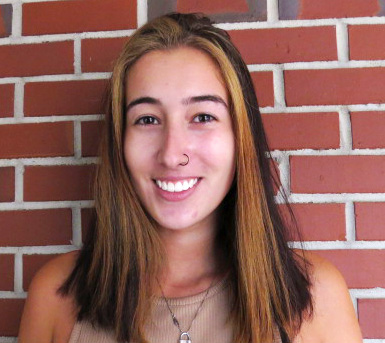
My research interests focus on mangrove ecosystems across Apalachicola Bay. I aim to examine the recent population growth rates of two resident species (Black and Red) across a regional latitudinal gradient. As well as determine what resources (e.g. nutrients, water) and regulators (freezing temperatures) are correlation with mangrove populations. This information will help to better understand how various environmental factors influence mangrove species and their shift in distribution patterns to help future management strategies and predict dispersal responses to environmental changes in an ecosystem.
.jpg)
I am interested in studying how species interactions and human activities play into the resilience of marine ecosystems. There's also a special place in my heart for farmer damselfish.
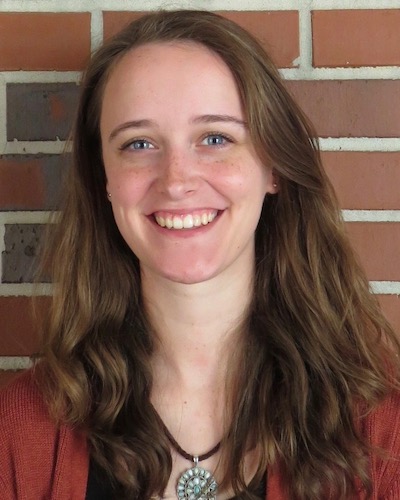
I am broadly interested in studying how biodiversity affects ecosystem functioning in coral reef ecosystems. My dissertation research focuses on identifying and predicting spatial and temporal shifts in coral functional diversity in response to anthropogenic stressors, and determining which aspects of functional diversity are key to maintaining high levels of ecosystem functioning in the face of regular disturbance regimes. (Pronouns: she/her/hers)
I am primarily interested in the behavioral ecology of elasmobranchs, particularly species of conservation concern. My past research used active and passive acoustic telemetry to investigate movement and habitat use patterns in coastal sharks. I am currently investigating social and mating behavior in the critically endangered smalltooth sawfish (Pristis pectinata) in the Florida Keys, and the habitat use of cownose rays (Rhinoptera bonasus) in Apalachicola Bay, FL. This work contributes to the delineation of essential fish habitat and informs the building of successful species conservation plans.

I use a combination of mathematical models and field-based experiments to study mechanisms of plant resistance to insect herbivory. I am especially interested in how individual-level interactions scale up to affect the spatial structures of populations and communities and how spatiotemporal variability can shape population and community dynamics. My research lies at the intersection of basic and applied science and I work in both natural and agricultural systems.
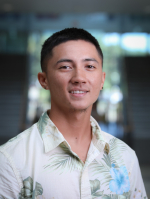
Florida State University Coastal and Marine Laboratory
I have a general interest in marine ecology, however my current work consists of identifying oyster-based habitat preference in economically important fishes and crustacean species in Apalachicola Bay, FL.
Room: 4004
KIN
Laurel’s research focuses on the implementation, tracking, management, and socio-ecological aspects of area-based marine conservation tools. She is also interested in the development of sustainable marine food systems and the compatibility of marine conservation and mariculture goals in ocean spaces.
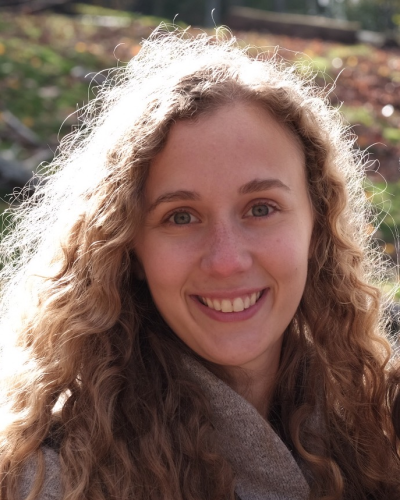
My research interests are based in applied ecophysiology. I am interested in how anthropogenic changes to the environment, such as increasing ocean temperature and increasing anoxic zones, affect an organism’s physiology, and in turn, how physiological changes affect ecology and population dynamics. My PhD research will focus on Eastern oyster health in the Apalachicola Bay system, and my goal is to assist fisheries managers and conservationists in restoring and preserving a healthy oyster population in Apalachicola Bay.Â

I am interested in social behavior and how interactions among conspecifics can drive evolutionary processes. Currently, I am studying the effects of male-male competition and female preference on the maintenance of genetic diversity in Trinidadian guppies. Pronouns: she/her/hers
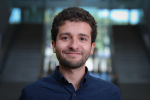
Room: 4004
King Life Science Building
I am interested in the evolution of complex social behavior. I study cooperative behavior in Lance-tail Manakins aiming to understand the drivers of behavioral variation in male-male displaying partnerships.
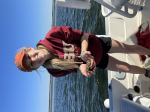
My research focuses on the morphological and behavioral differences that exist between cultured and wild sourced bivalves. These differences lead to large post-release mortalities, effecting the success of restoration aquaculture. My work helps to identify and correct those differences at the FSUCML Shellfish Restoration and Research hatchery, helping to optimize restoration aquaculture for the Florida bay scallop.
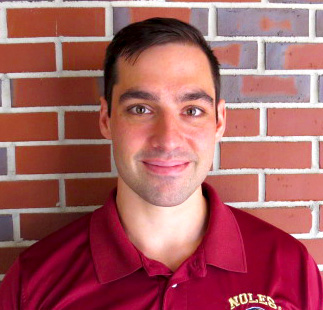
My studies focus on marine algae. Algae are ubiquitous throughout the oceans and their impacts are just as far reaching. Currently, I am studying how allelopathic interactions impact the development and proliferation of the dinoflagellate Karenia brevis - the species responsible for Florida's 'Red Tides'. These harmful blooms release toxins which kill hundreds of tons of marine life annually and negatively impact human health. By studying allelopathic interactions between K. brevis and other algal species I hope to uncover novel means to alleviate this damage. In the future, I would like to investigate marine drug discovery, HAB monitoring, algae biofuel production and algae based material production in an academic or industrial setting.
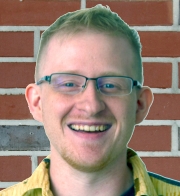
In the Houle lab, I use experimental evolution/artificial selection and whole-genome resequencing, to research parallel genetic evolution between evolved populations of D. melanogaster and D. simulans. These two closely related species offer the ability to evaluate the predictability of genetic evolution in response to an identical selection pressure.

Room: 4079
I'm interested in reproduction and mate choice of simulataneous hermaphrodites and how this reproductive strategy is a potential mechanism for the maintenance of variation in marine gastropods such as sea slugs.
My research currently focuses on the effects of climate change, such as increasing sea surface temperatures and marine heat waves, on a key marine herbivore, the purple sea urchin (Stongylocentrotus purpuratus) in California kelp forest ecosystems. More specifically, I focus on responses to thermal stressors during both larval and adult life history stages, which can provide important information on the population dynamics of this species, and ultimately the dynamics of kelp forests.
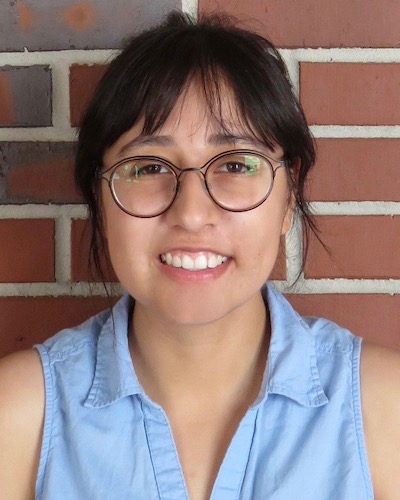
I am interested in how differences among conspecific individuals impact interactions, population dynamics and community level processes. In particular, I am interested in the tritrophic interactions of plants, herbivores, and enemies of herbivores.

I am broadly interested in better understanding the evolution and ecology of microbial symbionts in the digestive system of fish. In particular, I'm interested in identifying the role of digestive system microbial symbionts in alleviating the nutrient loading stress in local freshwater systems, using metagenomic and metaproteomic analysis of key microbial species, to determine contribution to adaptation.
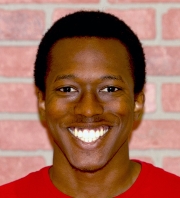
My research focuses on the potential for evolutionary rescue in marine invertebrates with complex life cycles. I take a quantitative genetics approach to estimate additive genetic variance in, and genetic correlations between, traits in larval and adult life stages. To estimate these variances and correlations, I conduct breeding designs and environmental manipulations using Molgula occidentalis and Bugula neritina, two invertebrates found in nearby shallow subtidal waters.
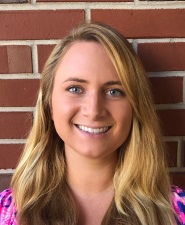
I am generally interested in conducting research, teaching, and public outreach related to tropical marine ecology and anthropogenic disturbance. Specifically, my dissertation research explores the effects of nutrient enrichment on Caribbean reef sponges.

I am broadly interested in understanding how anthropogenic pollution is affecting marine environments. I am particularly interested in how the presence of microplastics changes ecosystem function in subtidal sediments. My current research focuses on quantifying the effects of microplastics on bioturbation and biochemistry, specifically oxygen availability and nitrogen cycling, in the subtidal sediments of the northeastern Gulf of Mexico.
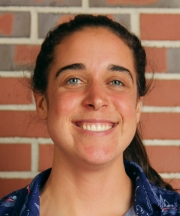
My dissertation research investigates the causes and consequences of variability in mate choice in a tropical lekking passerine bird. By examining variation within and between mate choice bouts in relation to neglected signaling modes and across long temporal scales, I hope to better understand the axes of variation in mate choice and their effects on the evolutionary outcomes of sexual selection.

I am interested in the mechanisms that drive epidemics. I use mathematical models and computer simulations to analyze such disease systems.
Interactions between organisms that share space are complex; this is especially true for coral reefs which boast unparallel biodiversity and whose benthic communities are composed of many taxa. Among these taxa, coral reef sponges and stony corals have unique and critical ecosystem functions; while the corals create reef structure and substrate, the sponges promote water clarity and act as a glue holding the reef together. Relationships between sessile reef organisms are often considered competitive, but a closer look tells us that mutualisms and commensalisms also exist between corals and sponges and may be more common than previously expected. By closely examining the point of contact between corals and sponges in addition to their overall growth and health one can interpret how these important functional groups work together to create some of the most biodiverse ecosystems in the Caribbean. Following many pairings of corals and sponge species through time has revealed that coral-sponge interactions can be temporally dynamic and, in some cases, inter- and intra-specifically variable. Consideration for the metrics used to classify interactions as competitive, mutualistic, and commensal and attention to the unique behaviors of coral and sponge species may call for incorporation of multiple taxa (corals and reef sponges) in efficient restoration and conservation efforts in the Caribbean.
My interests include population dynamics and evolution and plasticity in life-history and metabolic trait distributions (mostly in marine and aquatic organisms), along with development of new quantitative modeling approaches. A current focus of research is eco-evolutionary impacts of harvest on populations. I am also a Masters in STEM Teaching candidate at FSU. Pronouns: he/him.
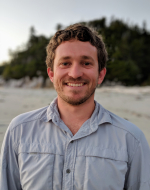
My goal is to advance our understanding of how trophic dynamics and environmental change affect the metabolic ecology of size-structured populations. I currently study marine invertebrates in temperate kelp forest and tropical coral reef ecosystems as model organisms for understanding these dynamics.
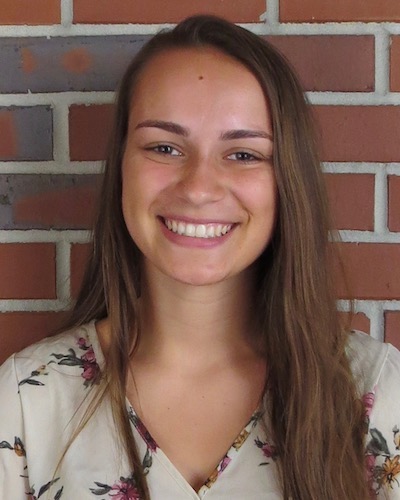
I am broadly interested in the evolution of visual and auditory signals in anuran communication and sexual selection. My current project focuses on examining the role of biofluorescence in mate choice and predation of frogs.
Room: 4055
King
Tom Miller, Tara Stewart Merrill, and R. Dean Grubbs labs: Evolution and Ecology Area Master's Thesis Student studying Elasmobrach Parasitology